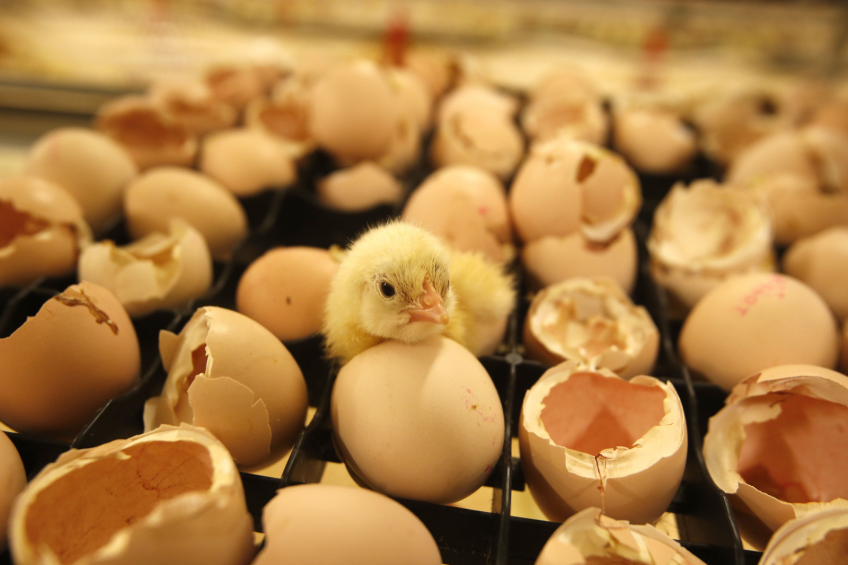Study: Hatchery vaccine 80-100% effective against H5N1

According to Ceva, a recent Egyptian study by Dr Walid Kilany published in Avian Pathology confirms that a single hatchery vaccination using a rHVT -AI vector vaccine can be an effective tool to address A/H5N1 prevention and control in endemic countries.
Addressing two commercial layer chicken breeds in Egypt where the AI H5N1 strain has been endemic since 2006, the research also found that the immunisation by-passed Maternally Derived Antibody (MDA) resistance to the vaccine. Furthermore, the report concurred that a single dose given in the hatchery delivered up to 19 weeks of protection and was far more cost-effective and efficient than existing vaccination systems, which cannot be applied until week four and require boosters during the chicken’s life time.
Less risk of infection
The AI vector vaccine is suitable for layers, broilers and breeders. It has been developed by Ceva “using contemporary science and novel technology which has been applied to a 50 year old proven vaccine, a frozen Marek’s vaccine (HVT). The science developed has managed to by-pass MDA’s which prevent day-old chicks from taking up classical vaccines and developing immunity to strains of AI at an early age. Moreover, the application of the vaccine within the controlled environment of a hatchery when the chick is one day old, means that they are protected earlier in their lives, are at significantly less risk of infection during their lives and will live healthily and productively to provide safe proteins (eggs and meat) to consumers.”
Ceva Santé Animale (Ceva) launched the first vector vaccine for AI, Vectormune ®AI, in Egypt following license approval from the USDA in April 2012. Ceva states: “Vectormune AI’s protection has been evaluated against about 13 different strains of the AI virus (H5N1), isolated from around the world belonging to different clades (categories of strains) of this rapidly spreading and fast mutating virus. Its efficacy is well proven ensuring a survival rate of between 80 and 100% of flocks within the test, no matter the provenance of the AI strain. Once inoculated the vaccine remains in the chick.”
Major threat
Commenting on the results of the Egyptian study, Pierre-Marie Borne, Public Health Zoonoses & Food Safety and Public Affairs Director, Ceva, said: “Avian Influenza remains a major threat to the global poultry industry and ultimately to human health. We must act now and use existing, proven and efficacious technologies. This study, like many before it, proves that a vector hatchery vaccine is labour saving, cost effective and provides clinical protection after a single doze immunization.”
“The current endemic status in some Asian countries including China and Vietnam demand that we take a long hard look at the tools open to governments, public health authorities as well as hatchery and farm owners to complement the existing ways to reduce the prevalence or control the risk.”












